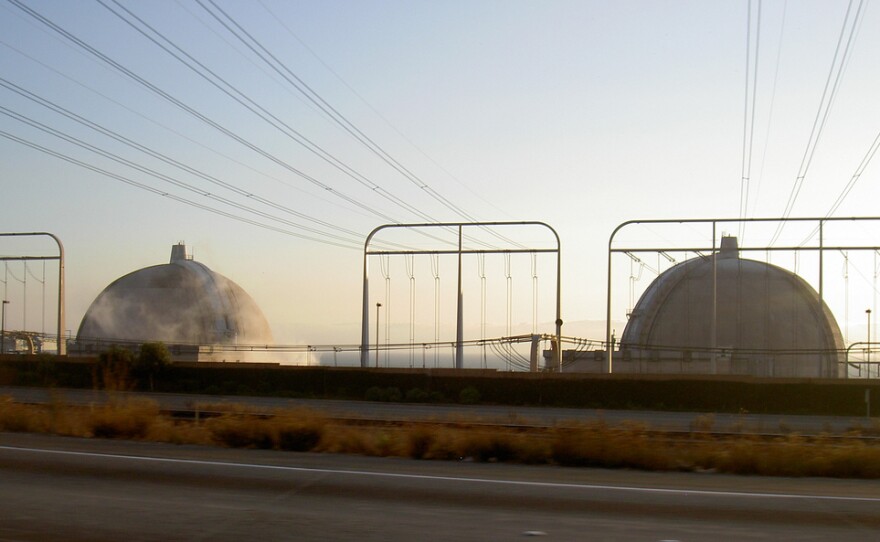Southern California Edison and San Diego Gas & Electric customers are hoping regulators will not require them to continue to pay for the annual $1 billion cost of running the troubled San Onofre nuclear plant.
State law allows regulators to remove costs from customer bills if a power plant has been offline for nine months. This week, the California Public Utilities Commission began a probe into whether that should happen in the case of San Onofre. The nuclear plant has been closed since January because of a problem with its new steam generators. In three previous investigations of other facilities by regulators, the outcomes were not entirely favorable to ratepayers.
The CPUC's approval of the Southern California Edison Palo Verde Nuclear settlement resulted in the removal of $1.8 million in capital costs from the plant in service. Ratepayers were no longer obligated to pay for a return on the investment. But they remained responsible for repaying the investment itself. Ratepayers were also responsible for repaying most of the replacement power costs when Palo Verde went down.
In the case of the Pacific Gas & Electric El Dorado Hydro settlement, the plant was removed from the rate base because the company sold it during the course of the proceeding. Ratepayers received a credit and ultimately had a reduced cost-responsibility for the Humboldt Bay plant.
For PG&E's Geysers Unit 15, ratepayers repaid the remaining initial investment of the plant, but they did not have to pay a return on the investment from the time the plant was taken offline. PG&E also had to refund some ratepayers.
John Geesman is an attorney for Alliance for Nuclear Responsibility. He believes regulators will have little choice but to rule in favor of customers on San Onofre because of the $54 million-a-month bills and the political market they represent.
“Southern California Edison plus San Diego, that’s pretty huge," Geesman said.
He said regulators should focus on the following questions for San Onofre.
"Are these things working?" he asked. "Why aren’t they working? Whose mistake was that? Who ought to be responsible for paying that? If you’re not willing to impose a certain level of accountability, how does the system ever render a rational judgment?
The answers to some of those questions are likely to come from the CPUC after they retrieve data from majority owner Edison. Company spokeswoman Jennifer Manfre said regulators have asked Edison to submit data-intensive information on the plant as they begin their probe.






